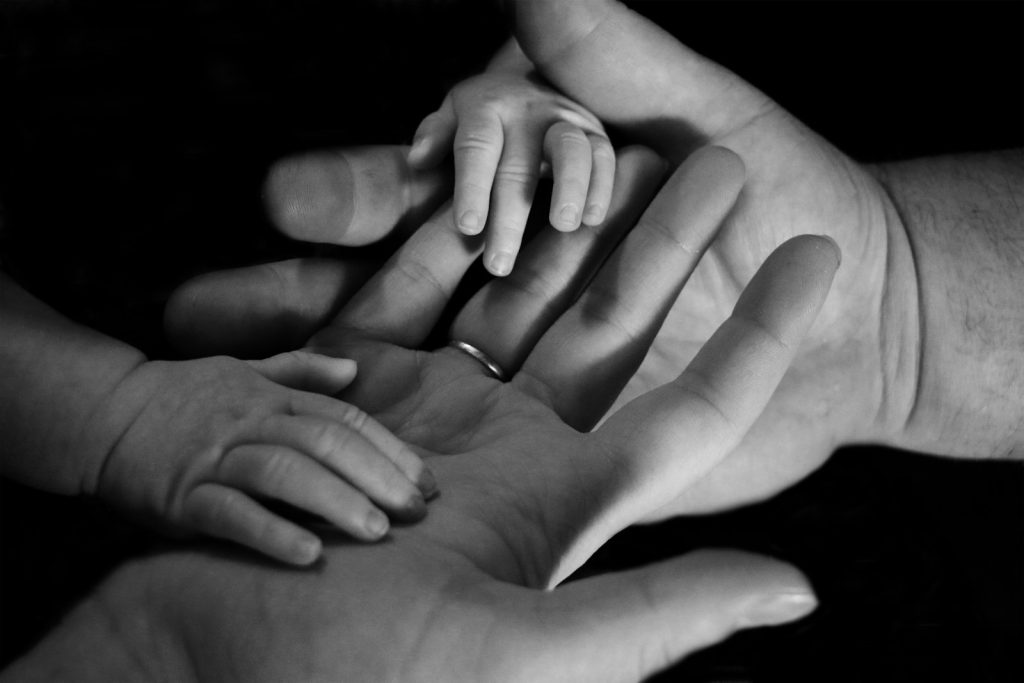
Buckle up, because this gets long.
In 2014, a small but determined group formed, driven by a shared sense of disbelief and frustration at the blatant bias they witnessed—or, in many cases, personally experienced—in Solano County Family Court. What began as informal conversations quickly evolved into an organized effort to shine a light on the systemic issues plaguing the family court system. The core of the problem at that time revolved around three primary family law judges: Christine Carringer, Garry Ichikawa, and Cynda Unger.
These judges, who held significant sway over the lives of countless families, seemed to operate with a level of bias that was not just troubling but outright alarming. Their rulings, often handed down with a cold disregard for the nuances of each case, painted a clear picture of a judiciary that was failing the very people it was meant to protect. The consequences of their decisions were not abstract; they were real, tangible, and, in many cases, devastating for the families involved.
Over the years, we’ve chronicled the actions and decisions of Judges Carringer, Ichikawa, and Unger, documenting the ways in which their rulings perpetuated harm. However, much of that documentation has been spread across numerous articles, blog posts, and personal accounts. If you want to understand the full scope of what transpired under their watch, consider this article as a comprehensive examination.
Domestic Violence Cases
Years into our advocacy, we randomly sampled hundreds of cases in Solano County, specifically examining the rate at which Domestic Violence Restraining Orders (DVROs) were filed and granted.
We found a significant disparity: DVROs were granted at a much lower rate when there was a concurrent custody case. While some judges showed a minor discrepancy of 5-7 percentage points, the difference for judges like Ichikawa, Carringer and Unger – referred to as “the terrible three,” was striking—exceeding 15 percentage points. Although this research did not look into the merits of each case, it highlighted a clear pattern: litigants in Solano County were less likely to receive a DVRO if they also had a custody case before the court.
When victims of domestic violence understood that their chances of receiving a restraining order were significantly reduced simply because they were fighting for custody, many were discouraged from filing at all. The fear of retaliation by the court, coupled with the possibility of losing even more time with their children, created an environment where silence often seemed like the safer option.
This fear wasn’t unfounded. Judges like Ichikawa, Unger, and Carringer frequently took adverse actions against litigants who alleged domestic violence, particularly in the context of custody disputes. Rather than seeing these allegations as serious claims that required careful consideration, these judges often viewed them as tactics or ploys, which led to punitive measures against the victim. It was not uncommon for a parent who brought forth allegations of abuse to see their custodial time reduced or altered as a result of their claims.
The message was clear: raising the issue of domestic violence could jeopardize your standing in a custody battle.

Illegal and Unethical Shenanigans
In one particularly egregious case, a victim of domestic violence presented photographic evidence of her injuries following a brutal beating. Instead of acknowledging the severity of the situation and the clear evidence of harm, Judge Garry (Skip) Ichikawa accused the litigant of “photoshopping,” the photos. He effectively discredited the victim and dismissed her pleas for protection. This was not an isolated incident. Also remember, Ichikawa presented himself as a champion of DV survivors, receiving hundreds of thousands from the DOJ Office on Violence Against Women for the creation of a special Domestic Violence Court.
Judge Christine Carringer’s actions were no less troubling. In a separate case involving child abuse, Carringer chose to ignore valid claims that a child was being harmed. Even more concerning, the case never should have been under Solano County’s jurisdiction. Rather than transferring the case to the appropriate state (as directed by the UCC-JEA), Carringer took matters into her own hands. She conducted a closed-door conversation with an out-of-state judge, persuading them to drop the case, thereby allowing her to assert jurisdiction improperly.
This child suffered such severe abuse San Francisco’s Child Protective Services stepped in to remove the child from the care of the father and his mother. Both were criminally prosecuted for child abuse.
In the tragic case of 5-year-old Cali Anderson, Judge Cynda Riggins-Unger made a decision that had devastating consequences. Despite Tyler Anderson’s documented drug addiction and recent release from incarceration, Judge Unger granted him full custody of Cali.
This decision came despite repeated warnings and clear indications of the risks involved. Cali’s mother, due to her disadvantaged socio-economic status, faced significant hurdles in challenging the ruling. She lacked the financial and legal resources necessary to navigate the complexities of the family court system. The result was that Cali was placed into a dangerous, neglectful environment that ultimately led to her tragic murder. Cali’s biological father and stepmother kept her handcuffed in an animal cage, neglecting and starving her to death, and then hid her body in a duffel bag in a storage unit.
This case is not an isolated incident; advocates in Solano County have long criticized Judge Unger for her alleged gender bias and for routinely awarding custody to male litigants with troubling criminal histories, including drug addiction and violent offenses.
Tip Of The Iceberg
These stories are merely the tip of the iceberg. Over the years, we have documented dozens of cases that reveal a pattern of troubling decisions made by judges like Cynda Unger, Garry Ichikawa, and Christine Carringer. Through examination of case filings, transcripts, and personal testimonies, we have uncovered a consistent thread of bias.
To this day, we continue to receive messages from families who have been adversely affected by the rulings of these judges. The echoes of these decisions reverberate long after the cases have closed, leaving a trail of devastation that spans generations.
It becomes increasingly clear that the issues within Solano County Family Court are deep-rooted and widespread. The experiences of those who have come forward represent only a fraction of the countless others who have been silenced or who continue to struggle in the shadows.
Other Tidbits
Since you’re reading, we’ll tell you a few bits of other stories:
Cynda Riggins-Unger: A pregnant woman was brutally beaten by her boyfriend, yet Judge Cynda Unger granted him ample parenting time, forcing the mother to facilitate the custody exchanges despite Family Code 3044. Only after a criminal protective order was issued did the mother find any protection.
Garry Skip Ichikawa: Refused to grant a protective order to a woman who sought safety after a man made death threats against her and even admitted to them. Despite the clear danger, the judge dismissed her pleas. The woman was later shot and killed, and it is widely believed that the man she had sought protection from was her assailant.
Cynda Riggins-Unger: A mother was kidnapped at knifepoint and brutally beaten by her ex, who also tortured both her and their child. Despite the ex’s history of child abuse, battery, felonies, and assault on police officers, Judge Unger dismissed this as “old news” and showed a clear bias in favor of the father. In court, Judge Unger often yelled, belittled, and humiliated the mother, shocking even the leaders of her church who witnessed the proceedings. Despite the father’s criminal history and documented abusive behavior, after only three supervised visits, Judge Unger awarded him 50/50 custody. The father soon began abusing the child again, neglecting medical needs to the point where the child had to be taken to the emergency room.
Christine Carringer: Ordered a custody exchange to the father, despite the mother having a move-away order and living out of state for over two years. The father, who fell within the boundaries of Family Code 3044 due to his history of domestic violence, was granted primary custody before any hearing or trial. The children were traumatically removed from their home and flown back to California, all to facilitate this court-ordered custody change, disregarding the stability and safety they had with their mother.
Cynda Riggins-Unger: Refused to consider a mother’s petition to have her daughter’s parenting time with the father outside the same housing unit as a registered sex offender relative. The court required the child to continue visitation in the same housing unit where the relative allegedly showed the minor unsafe content (child p—ography) regularly. Despite these serious concerns, the court prioritized visitation convenience over the child’s safety and well-being.
Garry Skip Ichikawa: Routinely granted custody to perpetrators of domestic violence without first following Family Code 3044, which requires the presumption to be rebutted before such decisions. His disregard for this legal safeguard led one notable case being overturned on appeal, highlighting his failure to… well… his failure to follow the law.
Cynda Riggins-Unger: During an ex-parte (emergency) hearing, Judge Unger granted the father sole custody without verifying the mother received proper notice of the hearing. Before this, the mother had primary custody of the child, who had reported being beaten by his father. Despite these serious allegations, Judge Unger refused to reconsider the change of custody. The son, tired of the abuse, eventually ran away as a minor and never returned (as a minor). His life was derailed by Judge Unger’s callous rulings.
Garry Skip Ichikawa: Awarded custody of two young children to their allegedly abusive father. The father promptly molested the twelve-year old daughter. After a Child Protective Services investigation (CPS), and a finding of abuse, the daughter was returned to her mother. In what appeared to be retaliation, Judge Ichikawa cut off all contact between the mother and her younger son who was also in the custody of the father. There was evidence that the son was also being molested, but since Judge Ichikawa cut off all contact with the mother, there was no way to prove the additional allegations.

Bad Business
Solano County’s family court system has developed a notorious reputation, as a result, many attorneys are increasingly reluctant to take on cases in Solano County, aware of the significant challenges and the unpredictable, often unjust, outcomes.
This reputation for bias and the mishandling of cases—especially those involving domestic violence and child custody—has created a toxic environment where victims are frequently left unprotected, and justice is often compromised. The ongoing crisis in Solano County’s family court system is a stark reminder of the urgent need for reform and accountability to restore faith in the judiciary and protect the most vulnerable among us.
We firmly believe that the issues plaguing Solano County’s family court system stem from the very top. As the saying goes, “the fish rots from the head,” and the pervasive bias is symptomatic of a deeper, systemic problem within the leadership of the judiciary.
It’s Not Over
The problems within Solano County’s family court system persist even with the current roster of family law judges. Despite reassignment or retirement, the culture of bias and disregard for the law continues to affect rulings. Current judges, following in the footsteps of their predecessors, are still issuing decisions that seem to prioritize expediency over justice and, in many cases, appear to be influenced by personal biases rather than the facts at hand.
Reports from litigants suggest that some of the current judges are not only maintaining the status quo but are also perpetuating the same errors in judgment that have long plagued this court.
A major issue in Solano County’s family court system is that many judges come to the bench with little to no background in family law. Family law cases are complex and emotionally charged, involving crucial decisions about domestic violence, child custody, and the welfare of families. When judges lack experience or expertise in these areas, they are more likely to make mistakes or overlook important details, leading to unfair and potentially harmful outcomes.
The combination of inexperienced judges and the rarity of appeals creates a perfect storm for injustice. Families are left to deal with the consequences of decisions made by judges who may not fully grasp the nuances of the cases before them. This reality highlights the urgent need for more rigorous training and a greater emphasis on family law experience for those who preside over these sensitive and critical cases.
We may not be able to change the system, but we can shine a light on its failures.